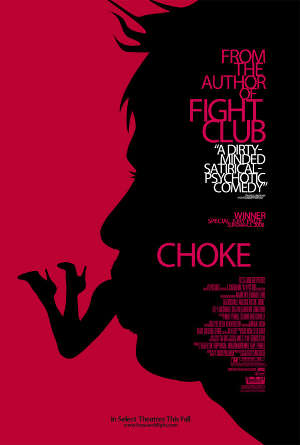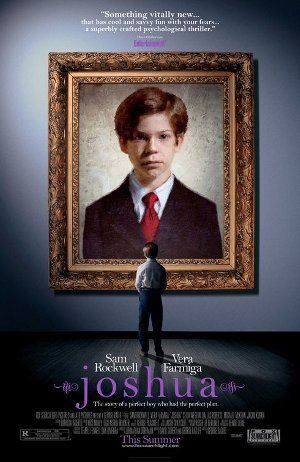Hitchhiker’s Guide to the Galaxy is not without it’s charms and moments of inspired absurdity, but ultimately it fails to come together enough to feel like a complete film, and instead settles for rewarding the long-time fans with in-jokes, references, and nods to the original source material, as well as it’s various incarnations. Part of that incompleteness is due to the film’s obvious aspirations to being a multi-part series, but mostly it lies in the source material itself. Viewed as one long novelized comedy skit, The Hitchhiker’s Guide to the Galaxy works as a brilliant piece of absurdist satire, but as a film it might leave you feeling cheerful and amused, but still a little bit let down.
The Hitchhiker’s Guide To The Galaxy
3 Stars
In the over 25 years of being a bestselling cult classic Douglas Adams’ book The Hitchhiker’s Guide to the Galaxy has been adapted for every medium except film. After languishing in Development Hell, and having been passed from director to direction, Adams’ classic is finally on the big screen. With a script from the author himself (which had been completed before his untimely death in 2001), former music video director Garth Jennings has crafted an adaptation that fans will recognize as utterly Adams, but with entirely new characters, sub-plots, and relationships that may leave long time readers feeling a bit confused.
 |
| The Cult Classic finally arrives |
The convoluted history of Hitchhiker’s is one filled with almost never-ending revisions, additions, and complete re-writes of what came before, most of which required of the reader to hold an almost blind faith towards its creator’s intention and vision. Originally created for a BBC radio comedy show, Adams continually tweaked and altered his creation so many times that even the Ultimate Hitchhiker’s Guide collection requires a substantial introduction to explain the various changes and permutations the cult classic has endured throughout it’s lifespan. So it’s no surprise that the new film version features a good 35 minutes of material that was created specifically for the film by Adams himself.
In what the filmmakers almost surely intend to be the first of a series of films, The Hitchhiker’s Guide to the Galaxy tells the story of the ultimate everyman, Arthur Dent (Martin Freeman). A man continually befuddled and confused by the world around him, Arthur wakes up one day to find bulldozers ready to demolish his home in order to make way for a new bypass. His day only gets worse from there as his best friend Ford Prefect (Mos Def) arrives to tell Arthur that, not only is Ford actually an alien from somewhere in the vicinity of Betelgeuse, but that the Earth itself is set to be demolished in 12 minutes by a race out to create a new hyperspace lane. Soon they’re bouncing across the galaxy with an on-the-run rock star styled President Zaphod Beeblebrox (Sam Rockwell), fellow human Trillian (Zooey Deschanel), and a manically depressed android (Alan Rickman) as they attempt to escape the ire of a race of ultimate bureaucrats while searching for the ultimate question of Life, The Universe, and Everything.
With its absurdist Marx Brothers dialogue, distinctly British sensibility, and wild sense of high adventure, The Hitchhiker’s Guide to the Galaxy would seem like an easy transition to film, but there’s a reason it’s taken so long to actually get made. Namely, there’s no real plot to the series, only breakneck paced episodes and (in what surely constitutes the majority of the text), the actual entries of the titular Guide itself. So the idea that Adams and the filmmakers would create a wholly new plot, while strengthening the relationships of the characters should come as no surprise to those familiar with Adams’ less than reverential approach to his own work.
So how does it work? Only partially. The Monty Python flavored opening sequence sets a standard that the film never really manages to reach. In order to preserve the tone of the book, Jennings chose to make the Guide itself a sort of character, with various entries being read to the audience by the voice of the Guide (Stephen Fry), and displayed as a series of short animations. These explanations are almost completely necessary to convey the mind-bending concepts of the Hitchhiker Universe, but only a few of the entries really connect, and the rest just stop the film in its tracks. The character of Arthur Dent has been significantly beefed up from the novels (where he serves as sort of a dumbfounded substitute for the reader, only capable of reacting in stuttering gasps and complete befuddlement). In the film, Dent is more of an active participant, out to find his place in the Universe and win the affections of Trillian, the adventurous girl he almost had, but lost to party crashing Beeblebrox. And while Freeman’s portray of the constantly put upon everyman is absolutely spot on, the romantic comedy aspect of the film feels more like filler material than an essential element of the story, as do the newly created sub-plots and characters.
Mos Def obviously had a lot of fun playing the Hunter S. Thompson-esque Guide writer Ford Prefect, and it’s almost impossible not to be infected by his madcap persona. Sam Rockwell is perfectly cast as the completely deranged Beeblebrox, though flamboyant and egocentric madmen seem to be his stock in trade these days. As the level headed Trillian, Zooey Deschanel makes it easy to understand why Arthur would be so hung up on her, but overall the film is completely stolen by Alan Rickman and Bill Nighy, whose Marvin the Paranoid Android and the world-designing Slartibartfast just ooze with easy brilliance perfectly suited to their roles and the spirit of Adams work.
The design of the film is a clever mix of high-tech CGI and goofy costuming which works to give the movie a comfortable feel that should be easily recognizable and familiar to fans of British Sci-Fi. The sets run from showroom floor clean (as befitting the newly christened ship Heart of Gold with which the main characters jet across the galaxy) to the lived in and grungy realism that George Lucas made work so well in the first Star Wars. Jim Henson’s Creature Shop was responsible for the alien creations that pepper the film, which seems like an unlikely choice in an age where CGI characters are so readily available, but the design and execution of the various creatures lends the film a wonderful throwback quality that works in its favor.
Hitchhiker’s Guide to the Galaxy is not without it’s charms and moments of inspired absurdity, but ultimately it fails to come together enough to feel like a complete film, and instead settles for rewarding the long-time fans with in-jokes, references, and nods to the original source material, as well as it’s various incarnations. Part of that incompleteness is due to the film’s obvious aspirations to being a multi-part series, but mostly it lies in the source material itself. Viewed as one long novelized comedy skit, The Hitchhiker’s Guide to the Galaxy works as a brilliant piece of absurdist satire, but as a film it might leave you feeling cheerful and amused, but still a little bit let down.

 If you have a sensitive gag reflex then Choke is not the film for you there are plenty of scenes that will make you gasp, feel your tongue swell and the bile rise. Throughout the story there is never a redeeming quality about any one single character and ultimately they are all pathetic and desperate, but this merely adds to the humor.
If you have a sensitive gag reflex then Choke is not the film for you there are plenty of scenes that will make you gasp, feel your tongue swell and the bile rise. Throughout the story there is never a redeeming quality about any one single character and ultimately they are all pathetic and desperate, but this merely adds to the humor.


